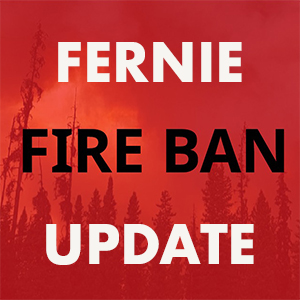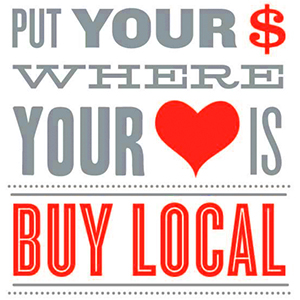
To help keep British Columbia’s communities safe and protect the health-care system from COVID-19, the Province is introducing travel restrictions that limit non-essential travel in B.C. Fernie tourism leaders say the move is a tough but a necessary one that will hopefully preserve Fernie’s summer.
On the advice of Dr. Bonnie Henry, B.C.’s provincial health officer (PHO), Mike Farnworth, Minister of Public Safety and Solicitor General, has issued a new order using the extraordinary powers of the Emergency Program Act to prohibit non-essential travel between three regional zones in the province, using health authority boundaries. The regional zones are:
1. Lower Mainland and Fraser Valley (Fraser Health and Coastal Health regions);
2. Vancouver Island (Island Health region); and
3. Northern/Interior (Interior Health and Northern Health regions).
While the order puts legal limits only on travel between regional zones, the PHO’s guidance remains unchanged throughout B.C.: everyone should continue to stay within their local community – essential travel only.

This order will be in effect from April 23 through May 25, 2021, (after the May long weekend). It applies to everyone in the province, including non-essential travellers from outside the province.
“The new variant strains are infecting more people and resulting in record levels of hospitalizations that place a growing strain on the front-line health workers who have been here for us throughout this pandemic. To help protect them and our communities, we must do more to discourage travel and begin to enforce restrictions on non-essential travel,” Farnworth said. “While this new legal order targets those who are travelling across regional zones for recreational purposes, the advice from Dr. Henry to stay local remains in place everywhere in B.C. Do not go to Whistler or Tofino – even on a day trip. Everyone should stay close to home.”
This order applies to non-essential travel. There are circumstances where travel is essential and permissible, such as attending school or work, the commercial transportation of goods, returning to a principal residence, accessing child care, obtaining health care or assisting someone to receive health care. (A full list follows in a backgrounder.)
“Community transmission and COVID-19 cases – including variants of concern – have increased in our health authorities, with many cases being linked to non-essential travel within B.C.,” Henry said. “I am calling on everyone to stay in their local communities and support these travel restrictions to stop the most dangerous travel across regional zones to control the spread of COVID-19 and support our front-line health-care workers.”

To help ensure this travel restriction is effective, the Province is also working with:
– The Ministry of Transportation and Infrastructure – on highway signage and increasing signage along the border with Alberta;
– BC Ferries – to restrict non-essential vehicle passage, deter non-essential bookings and limit sailings;
tourism and accommodation industry association leaders – to strongly encourage all operators/businesses to support the order by declining new bookings from outside their regional zones and cancelling existing bookings from outside their regional zones;
– BC Parks – to inform the public about restrictions and refund bookings where necessary; and
– police departments – on establishing enforcement measures in the coming days.
The goal of this order will be education and further discouraging people from travelling for non-essential reasons. In the coming days, the Province will work with police to establish periodic road checks at key travel corridors during times associated with leisure travel to remind travellers of the order.
Police will not engage in random checks, and enforcement measures will be informed by discussions with stakeholders on limiting the impacts to racialized communities. These road checks will be set up near ferry terminals and on highway corridors that connect different regions of the province.
If compliance measures are deemed necessary by police, fines can be handed out. At the discretion of police, a contravention of this Emergency Program Act travel order may be subject to a $575 fine.
Effective immediately, these measures are enacted under the provincial state of emergency, using the extraordinary powers of the Emergency Program Act. The act allows the minister to implement all procedures the minister considers necessary to prevent, respond to or alleviate the effects of an emergency, including controlling or prohibiting travel to or from any area of British Columbia.

Travel Order (Now till midnight May 25th):
– The ‘order’ specifically restricts non-essential travel between certain health regions of the province. Interior Health and Northern Health are being considered by govt as one region.
– There is no non-essential travel into B.C. from any province or territory. Road signs are up at the Alberta/B.C. border reminding travellers that all travel at this time must be essential. People from any province or territory are subject to the same travel restrictions as everyone in B.C.
– Non-essential travel includes vacations, weekend getaways, tourism activities, visiting friends and family for social reasons, recreation activities. See below for ‘essential’ reasons
– The province is highly encouraging accommodators/short term rentals to cancel any existing bookings from people outside the health region and not accepting any new reservations from outside the health region between now and May 25th.
– Govt states ‘Do not go on long trips within your region. Now it not the time for overnight vacations away from your community.’
Enforcement:
– Focused on travel between BC health regions.
– The goal of the order is education and reminding people about travel restrictions
– If restrictions need to be enforced, at the discretion of police, they can issue a fine of $575. Govt will be collecting on fines given.
– Police will not be engaging in random checks. There are no Alberta border checks.
Essential Travel is allowed and is defined as:
– Returning to your principal residence, moving or helping someone move
– Work, both paid and unpaid (volunteer)
– Commercial transportation of goods
– Getting health care or social services or helping someone get those services
– Court appearance, complying with a court order or parole check-in
– Shared custody agreement
– Child care services
– Attending school at a post-secondary institution
– Responding to a critical incident, like search and rescue operations
– Providing care to a person because of a psychological, behavioural or health condition, or a physical, cognitive or mental impairment
– Providing care or assistance to a person who is seriously ill, disabled or has a physical or cognitive impairment
– Visiting a resident (as an essential visitor) at:
A community care facility licensed under the Community Care and Assisted Living Act that provides long term care within the meaning of section 2 of the Residential Care Regulation
A private hospital licensed under the Hospital Act
A non-profit institution that has been designated as a hospital under the Hospital Act and is operated primarily for the reception and treatment of persons requiring extended care at a higher level than that generally provided in a private hospital licensed under the Hospital Act
– Attending a funeral
Learn More:
For more information about current COVID-19 travel restrictions, visit: www.gov.bc.ca/covidtravel
For information on the latest PHO orders and guidance, non-medical issues like travel recommendations and how to manage social isolation, visit: www.gov.bc.ca/COVID-19
For more information and latest medical updates on COVID-19, follow the BC Centre for Disease Control on Twitter @CDCofBC or visit its website: http://www.bccdc.ca























